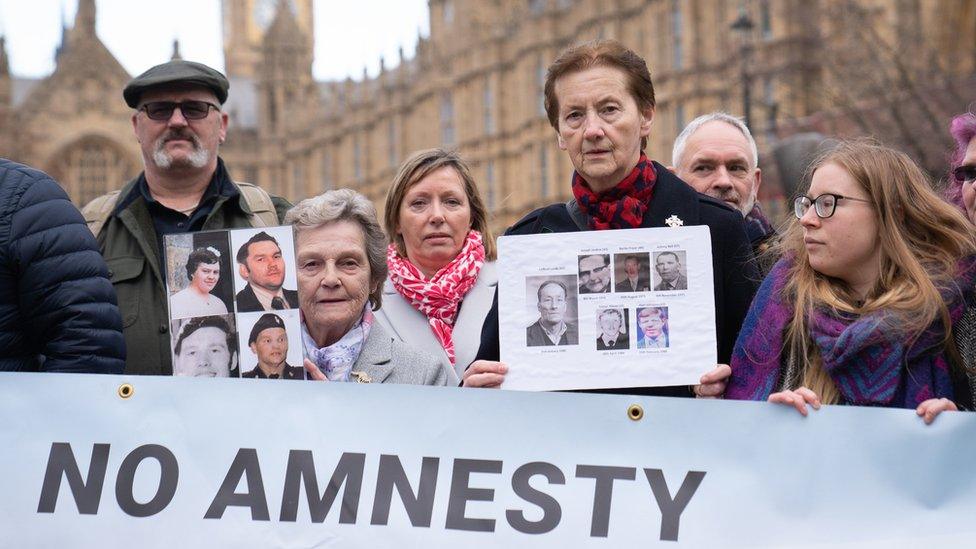Gerry Adams: Government to consider blocking damages claim
- Published
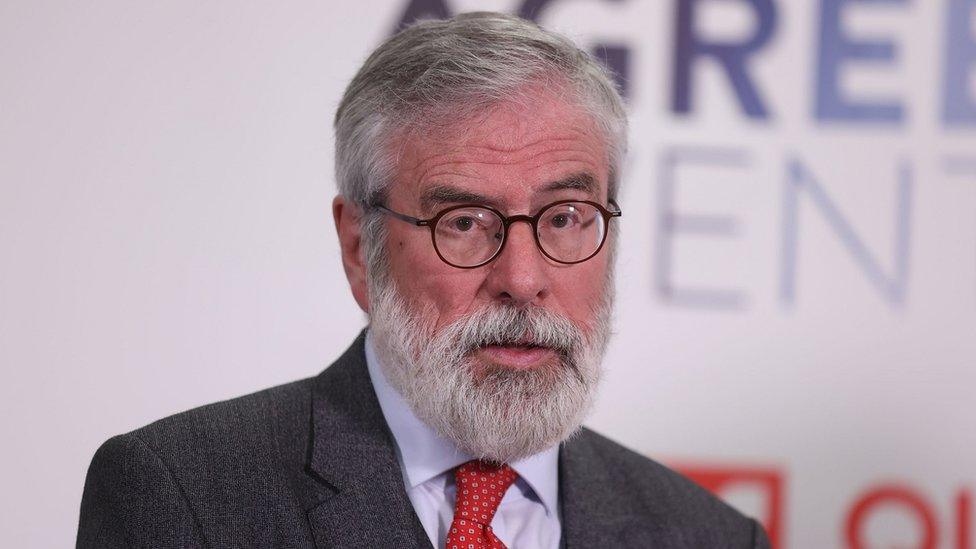
Gerry Adams had two historical convictions related to attempted prison escapes quashed in 2020
The government has said it will consider a move to block Gerry Adams and others from seeking damages over their detention without trial during internment in the 1970s.
Mr Adams is seeking compensation after the UK Supreme Court quashed two historical convictions related to attempted escapes.
The court found an error in the process authorising his detention.
This is likely to apply to hundreds of other internees.
During a House of Lords debate on the legacy bill, several peers spoke out against the damages claims brought about by "administrative error".
Two peers had tabled an amendment to the bill that would have inserted a clause barring claims.
However it was withdrawn when Northern Ireland Office (NIO) minister Lord Caine said the government needed time to consider any move.
"Given the lateness of the amendment and the important legal considerations, I am not in a position to give a full response today.
"I do take on board the very powerful points made by a number of Lords… and I do commit to coming back and discussing it further when the bill comes back," he said.
Speaking in the House of Lords before the amendment was withdrawn, Democratic Unionist Party (DUP) peer Lord Dodds said: "The prospect now that tens of millions of pounds could be spent in compensation for some technicality at a time when we're struggling for funds for vital services in Northern Ireland, this will cause outrage on all sides in Northern Ireland.
"There will be nobody who will support this and I think that the government should take on board this very considered amendment and I hope they will adopt it very, very quickly."
Sir Declan Morgan to lead legacy body
During the legacy bill debate, Lord Caine also announced that Sir Declan Morgan, a former Lord Chief Justice for Northern Ireland, had been selected to lead a new Troubles legacy body.
The bill intends to establish a new body, the Independent Commission for Reconciliation and Information Recovery (ICRIR), which Sir Declan will head.
The controversial legacy legislation was having its final committee sitting.
The bill, which introduces conditional amnesties, is on course to pass into law before summer.
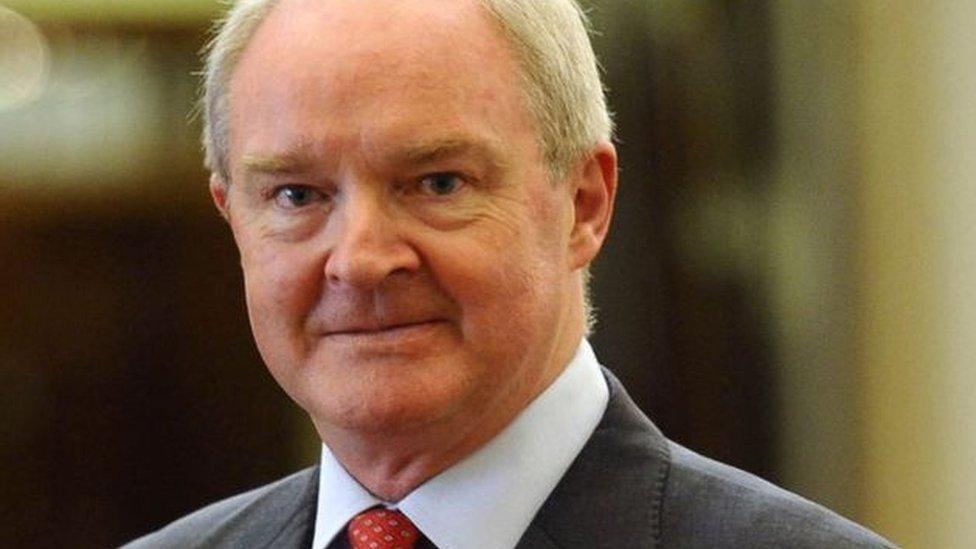
Sir Declan Morgan proposed setting up a legacy unit with its own staffing and resourcing in 2016
Confirming the announcement in a written ministerial statement to Parliament, Northern Ireland Secretary Chris Heaton-Harris said Sir Declan brought "a wealth of experience from his previous role".
"A hallmark of his distinguished career has been his commitment to addressing Northern Ireland's past," he added.
"I am confident that he will bring the highest level of experience, expertise and integrity to this post which will help build public confidence in the ICRIR."
Sir Declan said that his experience of the current system of dealing with Northern Ireland's past means "I know we need to try to do things differently".
He said he wanted to "engage with all those affected".
Sir Declan will begin work from early June.
The ICRIR said he would talk to a wide range of people and groups across Northern Ireland about how to build the new organisation in a "way that can take their needs into account, listen to their experiences and promote reconciliation".
He will also lead work to identify other commissioners and design how the new body will carry out its roles.
Sir Declan's work will not include proposals for changes to the legislation.
He will also lead the recruitment process for a Commissioner for Investigations.
Sir Declan had proposed setting up a legacy unit with its own staffing and resourcing in 2016.
He had asked the then-Stormont Executive to fund his five-year-plan, saying there was a legal obligation on the state to ensure so-called legacy inquests take place.
He told the legacy bill committee last June that he recognised there were "challenges" with the legislation but he would be "horrified" to lose "the first opportunity we've had to do something for all the victims".
The Northern Ireland Troubles (Legacy and Reconciliation) Bill will progress to report stage before its third reading in the House of Lords.

What is the legacy bill?
Legislation that aims to draw a line under the Northern Ireland Troubles by dealing with so-called legacy issues
The Northern Ireland Troubles (Legacy and Reconciliation) Bill runs to almost 100 pages
It was introduced in May in an attempt to deal with more than 1,000 unsolved killings
A central element involves immunity from prosecution for those who co-operate with investigations run by a new information recovery body
Victims' groups, the Irish government and political parties at Stormont are opposed to the bill, arguing it will remove access to justice for victims and their families
Veterans Commissioner Danny Kinahan gave the bill a cautious welcome and it is also supported by the Northern Ireland Veterans Movement
The bill had its second reading in the Lords on 23 November. The government told peers it would bring forward amendments including "a more robust process" around immunity from prosecution
Lord Caine of the Northern Ireland Office (NIO) said the Independent Commission for Reconciliation and Information Recovery (ICRIR) would be able to conduct criminal investigations
He said he would be "very, very surprised" if he does not table more amendments to the bill.

Related topics
- Published28 April 2023
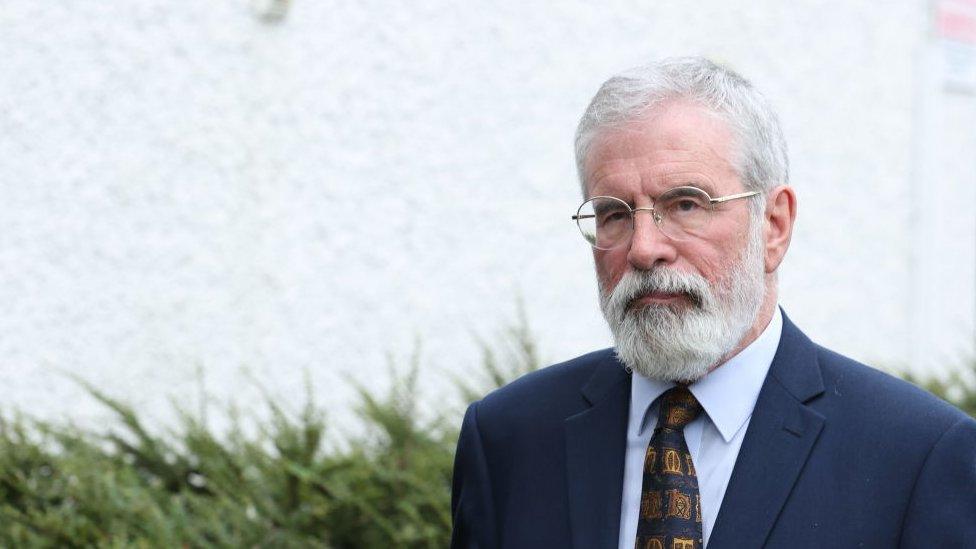
- Published12 February 2016
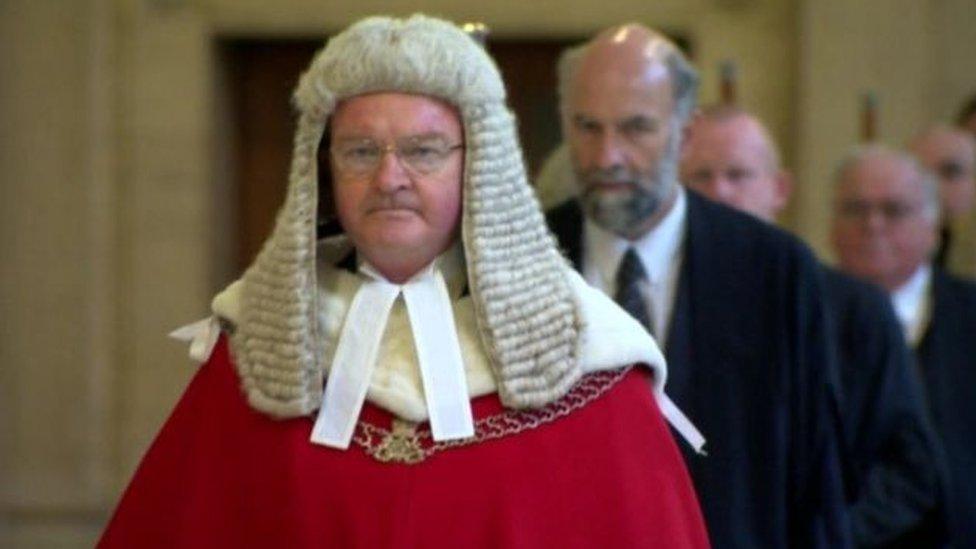
- Published9 December 2022
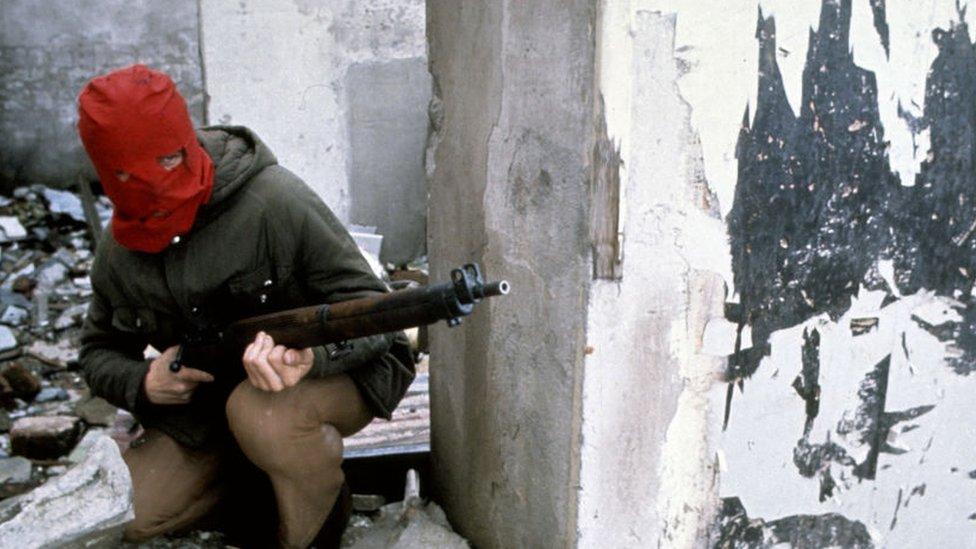
- Published31 January 2023
